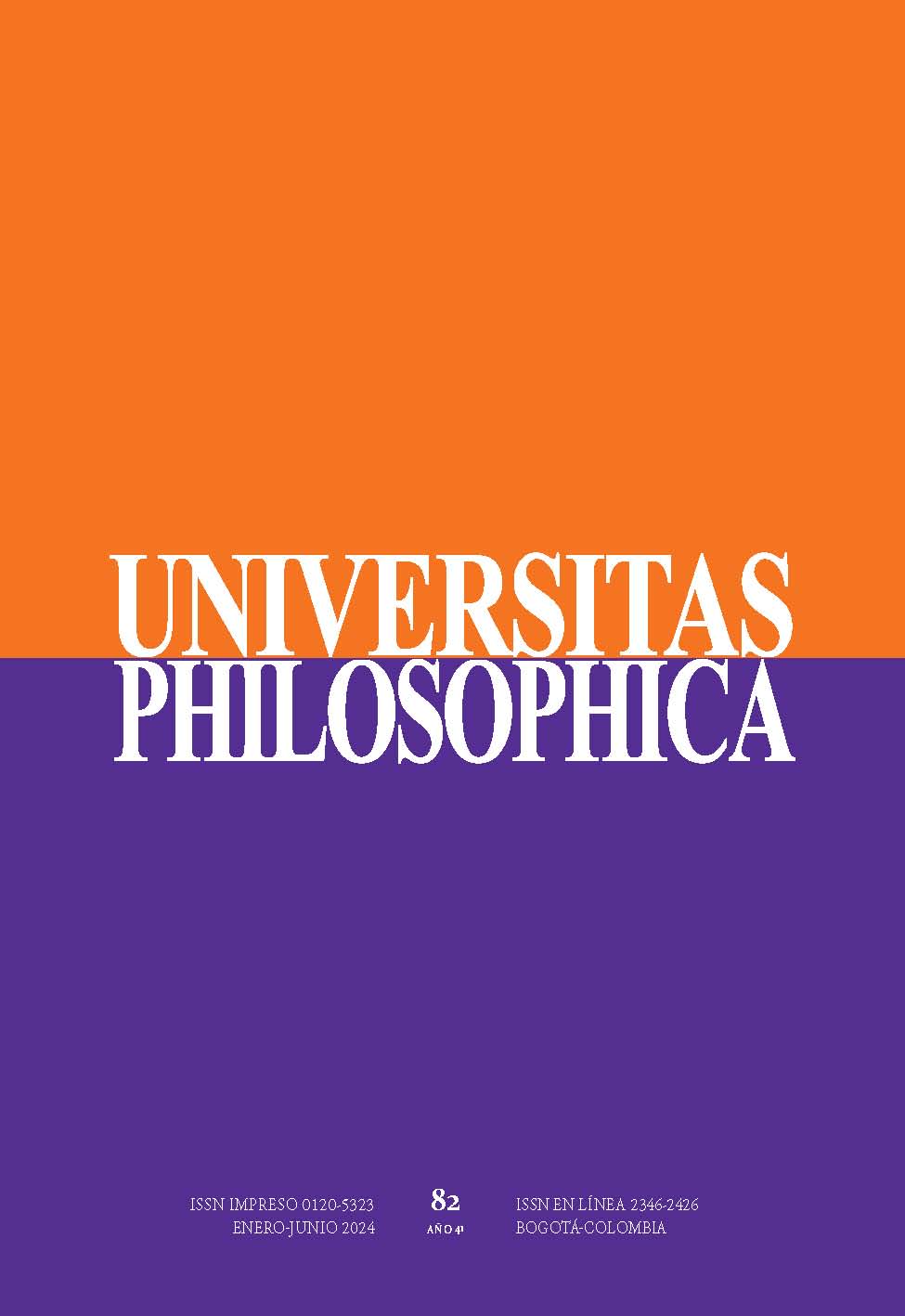Towards the Sources of Transcendental Empiricism: Deleuze With and Beyond Gueroult
##plugins.themes.bootstrap3.article.details##
Deleuze’s relationship with Gueroult is paradoxical. On a strictly philosophical level, Gueroult adhered to a rationalism that was not dissimilar to that of Alquié or Hyppolite, which Deleuze criticized severely. But Deleuze did not criticize Gueroult’s positions, instead frequently adopting them himself. How can this be explained? The reason seems to be the following: Gueroult constantly sought a “synthetic order” or a “genetic dynamism” in philosophy; yet, before it served as the basis of the thinker’s method, this aim expressed a certain conception of philosophy, from which both his practice and history of philosophy derived; and if Deleuze took up Gueroult’s positions, it is because Gueroult’s aim, and the conception of philosophy it involved, never ceased to influence his own philosophical work. In Deleuze’s work, this desire even made it possible to take a decisive position—that is, the critique of rationalism in the name of transcendental empiricism—, surpassing Gueroult’s intention. The disciple became a creator, both with and beyond Gueroult. It is perhaps in this sense that Olivier Revault d’Allonnes’s statement can be understood: “I have always found that Gilles [Deleuze] was a great disciple of Gueroult.”
Deleuze, Gueroult, Spinoza, transcendental empiricism, post-kantismDeleuze, Gueroult, Spinoza, empirismo trascendental, post-kantismo
Bianco, G. (2005). Jean Hyppolite et Ferdinand Alquié. En S. Leclercq (Ed.), Aux sources de la pensée de Gilles Deleuze 1 (pp. 91-101). Sils Maria, Vrin.
Cassirer, E. (1999). Le problème de la connaissance dans la philosophie et la science des temps modernes, III. Les systèmes postkantiens. Cerf.
Deleuze, G. (1956-1957). Qu’est-ce que fonder? Cours hypokhâgne, Lycée Louis le Grand. París. https://www.webdeleuze.com/textes/218
Deleuze, G. (1962/1971). Nietzsche y la filosofía (C. Artal, Trad.). Anagrama.
Deleuze, G. (1953/1977). Empirismo y subjetividad. La filosofía de David Hume (H. Acevedo, Trad.). Gedisa.
Deleuze, G. (1966/1987). El bergsonismo (L. Ferrero Carracedo, Trad.). Cátedra.
Deleuze, G. (1987/1989). El pliegue. Leibniz y el barroco (J. Vásquez & U. Larraceleta, Trads.). Paidós.
Deleuze, G. (1990/1995). Conversaciones (J. L. Pardo, Trad.). Pre-Textos.
Deleuze, G. (1968/1996). Spinoza y el problema de la expresión (H. Vogel, Trad.). Muchnik.
Deleuze, G. (1968/2002). Diferencia y repetición (M. S. Delpy & H. Beccacece, Trads.). Amorrortu.
Deleuze, G. (2004a). Cours sur le Chapitre III de L’Évolution créatrice de Bergson. En F. Worms (Ed.), Annales bergsoniennes II (pp. 166-188). P.U.F.
Deleuze, G. (1981/2004b). Spinoza. filosofía práctica (A. Escohotado, Trad.). Tusquets.
Deleuze, G. (2005). La isla desierta y otros textos. Textos y entrevistas (1953-1974). Edición preparada por David Lapoujade (J. L. Pardo, Trad.). Pre-Textos.
Deleuze, G. (2015). Lettres et autres textes. Édition préparée par David Lapoujade. Éditions de Minuit.
Deleuze, G., & Guattari, F. (1991/1993). ¿Qué es la filosofía? (T. Kauf, Trad.). Anagrama.
Deleuze, G., & Parnet, C. (1977/1980). Diálogos (J. Vázquez, Trad.). Pre-Textos.
Dosse, F. (2007). Gilles Deleuze et Félix Guattari. Biographie croisée. La Découverte.
Goddard, J. C. (2003). Fichte (1801-1813). L’émancipation philosophique. P.U.F.
Gueroult, M. (1929). La philosophie transcendantale de Salomon Maïmon. Alcan.
Gueroult, M. (1930). L’évolution et la structure de la Doctrine de la Science chez Fichte. Les Belles Lettres.
Gueroult, M. (1967) Leibniz. Dynamique et métaphysique. Aubier-Montaigne.
Gueroult, M. (1969). Spinoza, I. Dieu (Éthique, I). Aubier-Montaigne.
Lord, B. (2011). Kant and Spinozism: Transcendental Idealism and Immanence from Jacobi to Deleuze. Palgrave McMillan.
Macherey, P. (2011). Spinoza 1968: Gueroult et/ou Deleuze. En P. Maniglier (Ed.), Le moment philosophique des années 1960 en France (pp. 293-313). P.U.F.
Simont, J. (1997). Essai sur la quantité, la qualité, la relation chez Kant, Hegel, Deleuze. L’Harmattan.
Spinoza, B. (1990). Tratado breve (A. Domínguez, Trad.). Alianza Editorial.
Spinoza, B. (2009). Ética demostrada según el orden geométrico (A. Domínguez, Trad.) Trotta.
Spinoza, B. (2014). Tratado de la reforma del entendimiento, Principios de la filosofía de Descartes, Pensamientos Metafísicos. (A. Domínguez, Trad.). Alianza Editorial.
Vaysse, J. M. (1994). Totalité et subjectivité. Spinoza dans l’idéalisme allemand. Vrin.
Vuillemin, J. (1954). L’héritage kantien et la révolution copernicienne. P.U.F.
Vuillemin, J. (1962). La Philosophie de l’Algèbre. P.U.F.

This work is licensed under a Creative Commons Attribution 4.0 International License.


